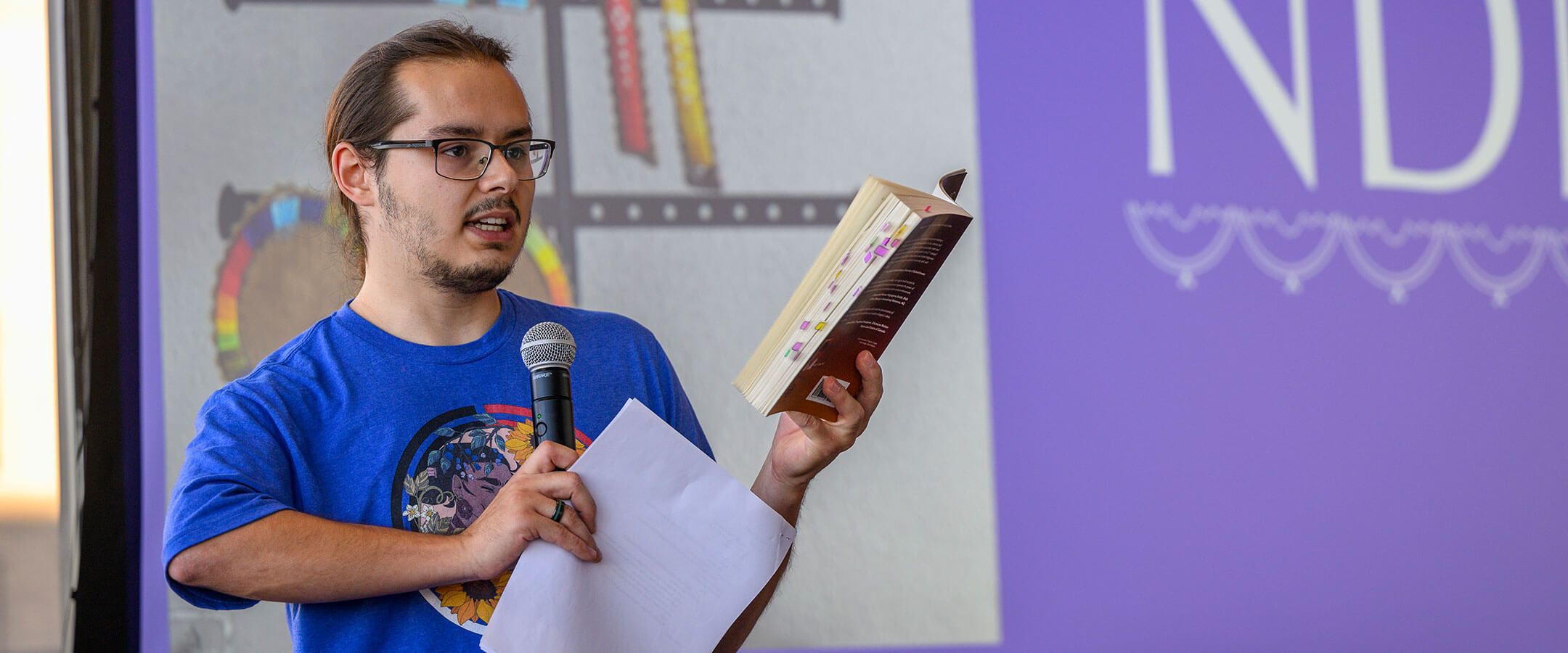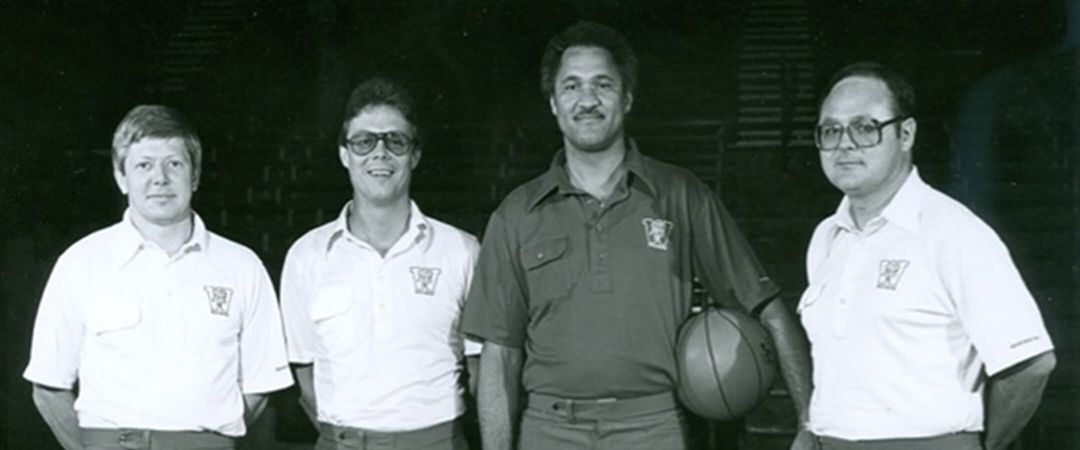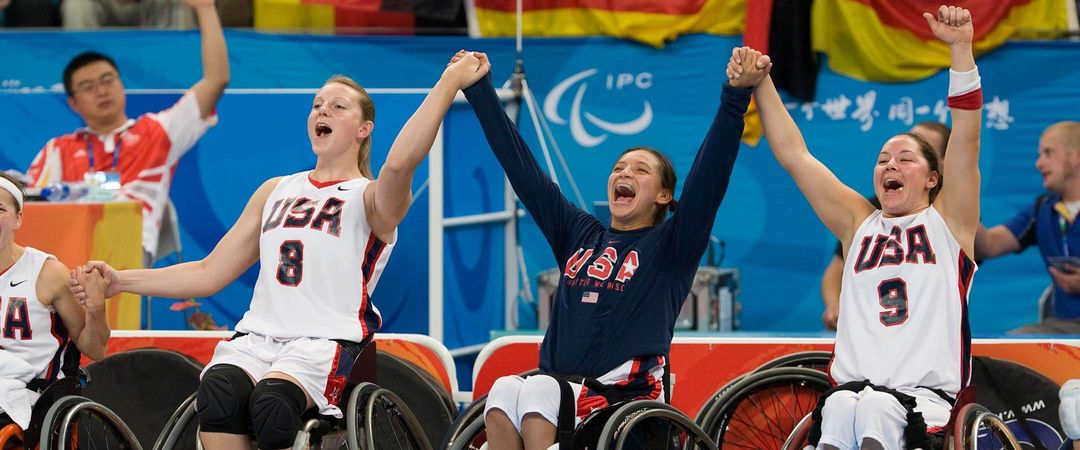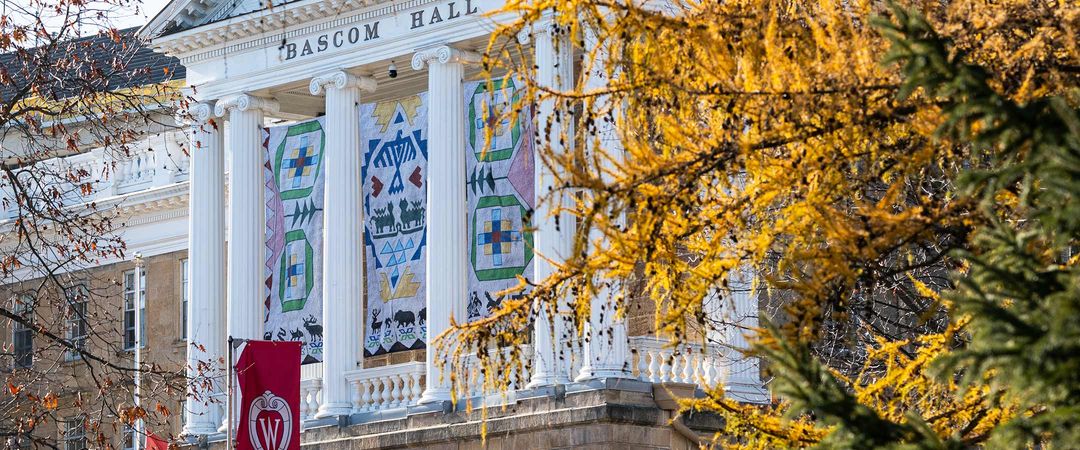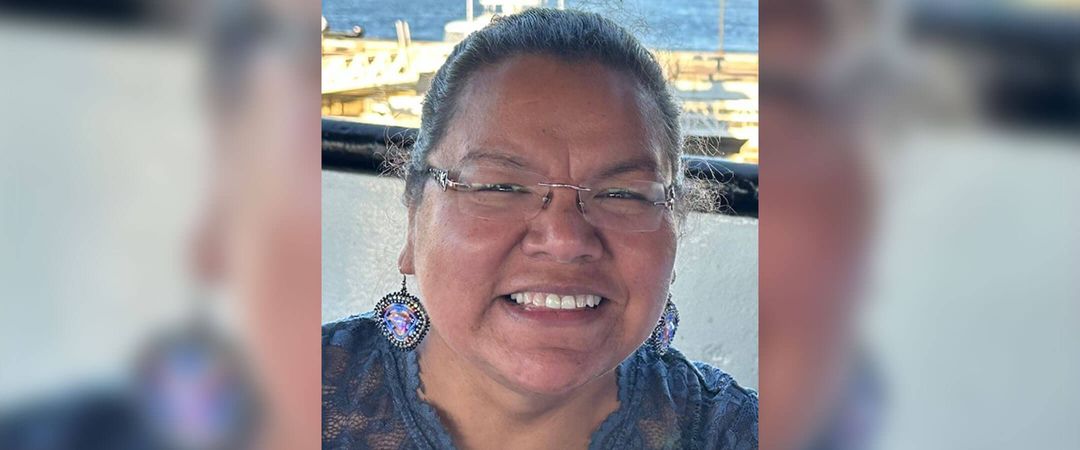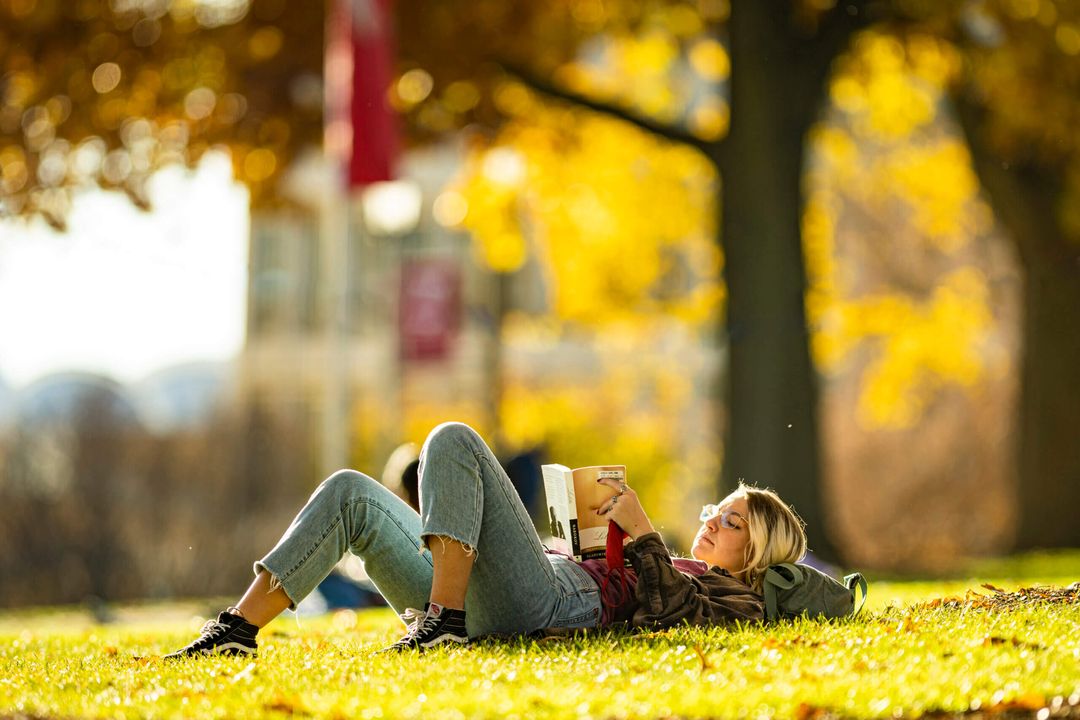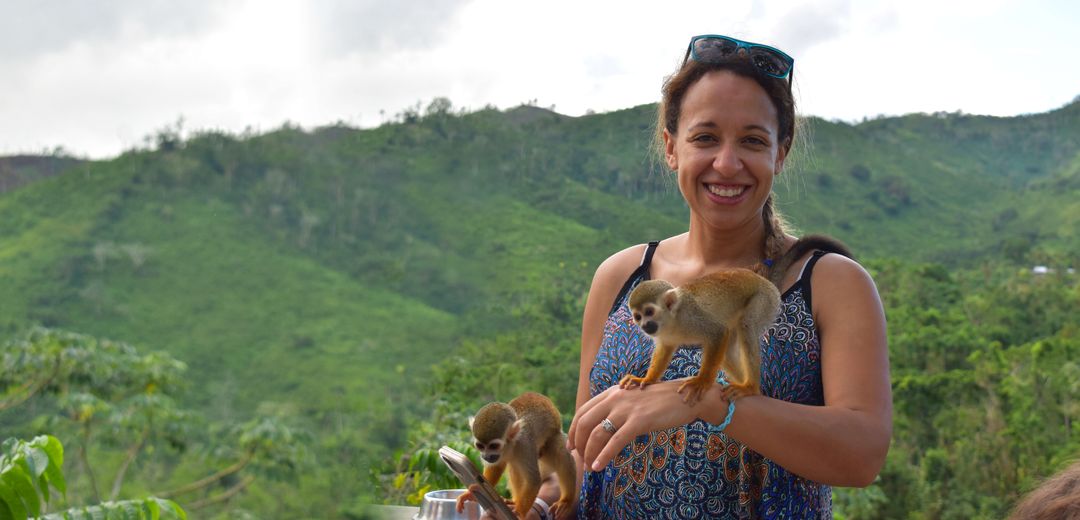Michael Williams ’21, JD’24 has always been surrounded by Wisconsin’s Indigenous cultures. A member of the Bear Clan of the Oneida Nation, he grew up on the Oneida Indian Reservation near Green Bay, Wisconsin. Soon after arriving at UW–Madison, he joined Wunk Sheek, an organization for students of Indigenous identities and for UW community members interested in Indigenous issues and cultures. Today, as an attorney working to ease access to justice in tribal communities, Williams continues to learn what it means to be an Indigenous person in America while giving current UW Law students an unprecedented opportunity to give back to Wisconsin’s First Nations.
“It wasn’t until college that I really started to understand what it means to be an attorney, especially for an Indigenous person,” Williams says. “I started to learn more about the relationships between the federal government and tribal nations, and specifically my tribal nation.”
These relationships fall within the realm of federal Indian law, which Williams describes as weighing “how the colonizing sovereign interacts with the Indigenous sovereign,” including the limits that the federal government places on tribal sovereignty and the contexts in which tribes can express it. This differs from tribal law — legislation created by and enforced within respective tribes after the Indian Reorganization Act of 1934 — and the tribes’ traditional legal systems that predate this contemporary legislation.
“[Understanding these nuances] is necessary to even have intellectual conversations or debates over what the law is,” Williams says.
Participating in the Pre-Law Undergraduate Scholars Program affirmed his desire to attend law school to become better versed in these nuances. It also set him on the path to extending that awareness and understanding to others.
During his second year at UW Law School, Williams worked with the Oneida Nation judiciary to update Tribal Court of Appeals opinions with legal summaries and metadata. This information is essential for publishing resources that are used by attorneys, judges, and other individuals who are trying to interact with the legal system, but it has historically been limited in many tribal nation databases.
“It’s a big access-to-justice problem,” Williams says. “How can we say that these courts are accessible if you can’t clearly access the rules that are set by case law over time?”
After working on nearly 80 Oneida Nation Tribal Court opinions, Williams saw the potential value of this work to prelaw students. With the support of law professor Erin McBride, Williams approached the UW legal studies program with the Tribal Court of Appeals Project, a course in which students would create summaries for real tribal court opinions, which would then be reviewed by a UW Law student and added to the tribe’s database.
“It started as me with a spreadsheet and all the cases that were already online,” Williams says. “Then I was looped into meetings for the Digital Publication of Tribal Laws Pilot Project from the UW Law School Library and the Great Lakes Indigenous Law Center (GLILC) in partnership with Open Law Library. The team — [GLILC outreach program manager] Dan Cornelius JD’09; [UW Law Library director] Bonnie Shucha JD’14; [GLILC director] Amanda White Eagle ’01, JD’05, and others — offered me various resources on summarizing cases … and I used these resources in developing the database that we used in the project.”
The pilot course launched in fall 2023, and its inaugural cohort of five students summarized 100 tribal court cases. One year later, the course is offered as Legal Studies 400, and 15 students are hard at work summarizing cases for both the Oneida Nation and the Stockbridge-Munsee Band of Mohican Indians judiciaries.
Ella Buffalo x’25, a senior majoring in journalism and legal studies, has worked on the Tribal Court of Appeals Project since it was first offered. An enrolled member of the Red Cliff Band of Lake Superior Chippewa and granddaughter of Chief Judge Henry Buffalo JD’81, Buffalo grew up around the tribal court system. With this project, she’s working within it even sooner than she anticipated.
“I have read cases for other classes, [but] I've never gotten the chance to dissect them as deeply as I have for these cases,” she says.
According to Williams, the opportunity to work directly with tribal law and make meaningful contributions to tribal courts as an undergraduate is a rare and invaluable experience for the students enrolled in the course. It’s also not work that can be taken lightly.
“[The students] sign waivers with the [tribal] nation and the university saying that this is for educational value and that all [the] data and this work product [are] owned by the tribe, which doesn’t happen in a lot of research settings in any field,” Williams says. “I try to teach them the gravity of entering into an agreement with sovereign nations that have been repeatedly impacted negatively by institutions, specifically by [researchers] coming in and being extractive.”
Williams now works only part-time with the Tribal Court of Appeals Project. In June, he began working as a codification attorney with Open Law Library, a nonprofit that helps governments publish their laws directly to the public. He hopes to help the organization “Indigenize” their processes for publishing tribal nations’ laws in order to bring them to Native and non-Native people alike.
“[It’s about] trying to understand the tribe’s traditional customs so that we can restore that respectful process of engaging with tribes,” Williams says, “and then looking for opportunities to support tribes, like with the university, where there are needs on both sides and they can be fulfilled by working together.”
